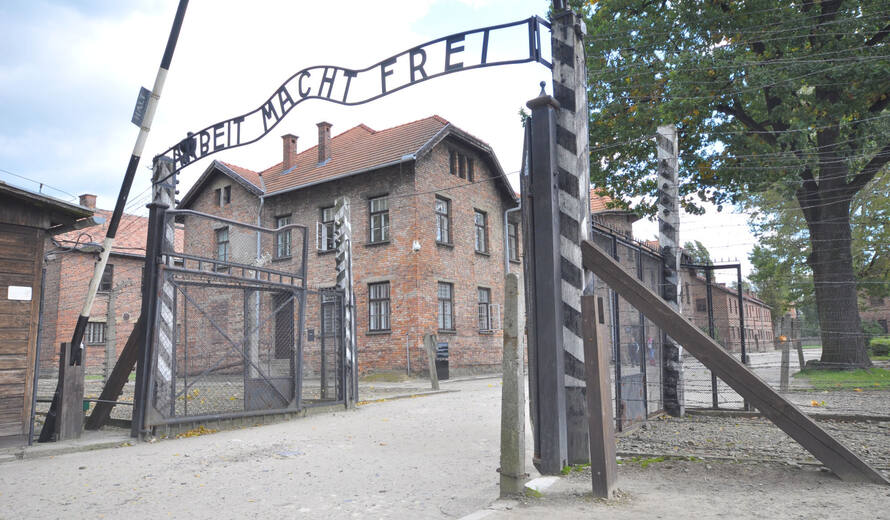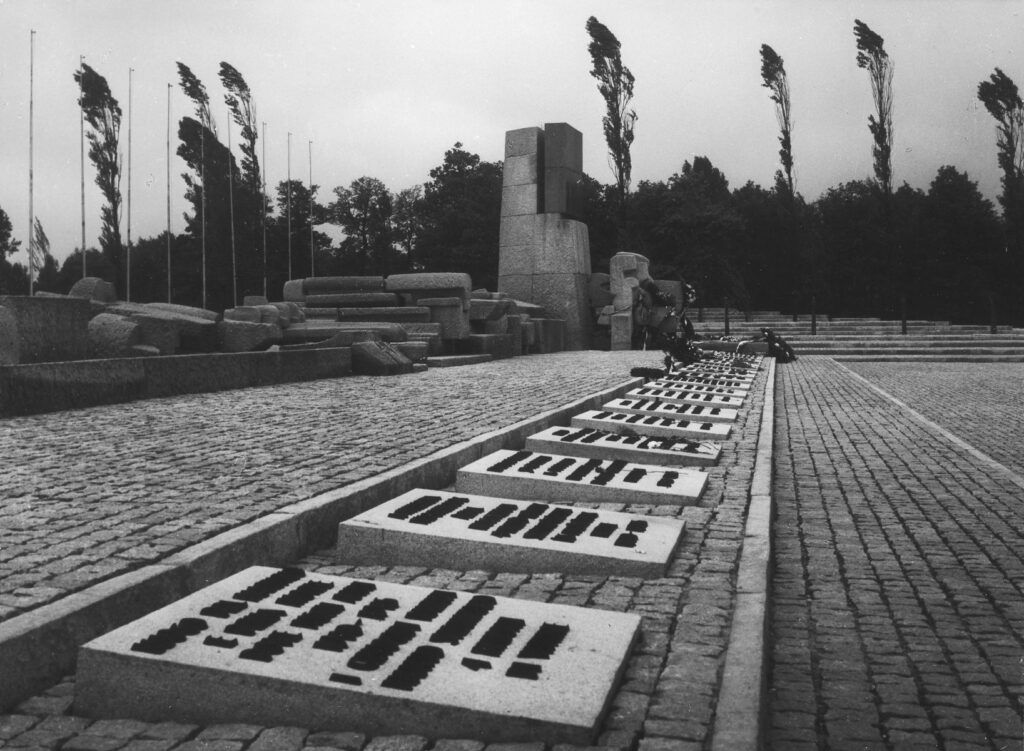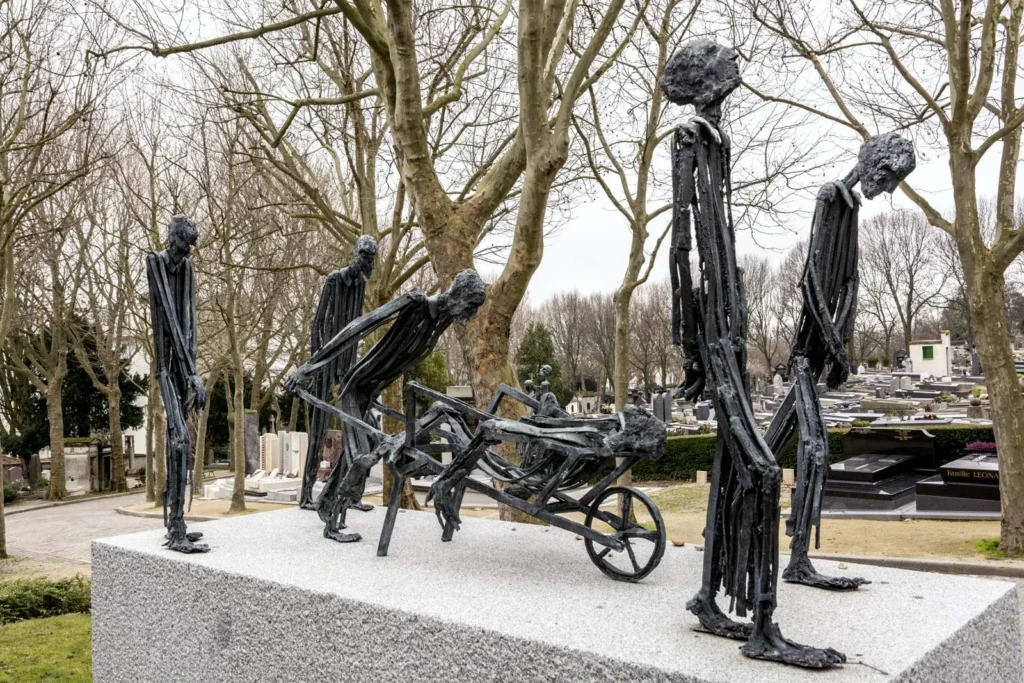The Auschwitz-Birkenau Memorial stands as a poignant reminder of one of the darkest chapters in human history. Established on the grounds of the former Nazi concentration and extermination camp, it serves as both a memorial to the millions of lives lost during the Holocaust and as a testament to the resilience of the human spirit. This article provides a comprehensive exploration of the mission and evolution of the Auschwitz-Birkenau Memorial, examining its significance in preserving memory and honoring the victims of one of the most horrific atrocities of the 20th century. Amidst efforts to ensure remembrance, virtual event emcee has also played a crucial role in organizing online commemorations, fostering global solidarity in honoring the memory of those who perished.
Preserving the Past: The Mission of the Auschwitz-Birkenau Memorial

At the heart of the Auschwitz-Birkenau Memorial’s mission is the preservation of historical truth and the commemoration of the victims who perished within its walls. Through its exhibits, archival materials, and educational programs, the memorial strives to ensure that the horrors of the Holocaust are never forgotten. By bearing witness to the atrocities committed at Auschwitz-Birkenau, visitors are confronted with the stark reality of genocide and the consequences of unchecked hatred and prejudice.
Moreover, the memorial serves as a site of remembrance and reflection, allowing visitors to pay their respects to the millions of individuals who lost their lives during the Holocaust. Through guided tours and educational initiatives, visitors gain a deeper understanding of the experiences of those who were imprisoned and murdered at Auschwitz-Birkenau. By engaging with survivors’ testimonies and historical artifacts, visitors are challenged to confront the moral and ethical implications of the Holocaust, fostering a commitment to tolerance, empathy, and social justice.
Just as the memorial strives to uphold historical accuracy and respect, the loan servicing software for hard money lenders ensures the integrity and efficiency of financial transactions, offering a seamless experience for lenders navigating complex lending scenarios.
The mission of the Auschwitz-Birkenau Memorial extends beyond the confines of its physical location. It is a global beacon of remembrance, advocating for Holocaust education and awareness around the world. Through partnerships with educational institutions, governments, and NGOs, the memorial promotes initiatives to combat antisemitism, racism, and other forms of discrimination. By fostering dialogue and understanding, the memorial seeks to ensure that the lessons of the Holocaust resonate across generations, inspiring a collective commitment to never again allow such atrocities to occur.
Evolution of Remembrance: From Memorialization to Education
Since its establishment, the Auschwitz-Birkenau Memorial has evolved from a site of memorialization to a center for education and remembrance. Recognizing the importance of transmitting the lessons of the Holocaust to future generations, the memorial has expanded its educational programs to reach a global audience. Through partnerships with educational institutions, governments, and NGOs, the memorial seeks to promote Holocaust education and combat antisemitism, racism, and other forms of discrimination. Just as wedding officiants play a crucial role in commemorating love and commitment, the memorial stands as a testament to remembrance and reflection on the atrocities of the past.
Furthermore, advancements in technology have enabled the Auschwitz-Birkenau Memorial to enhance its educational offerings and reach broader audiences. The development of virtual tours, online exhibits, and digital archives has made the memorial’s resources more accessible to individuals around the world, ensuring that the lessons of the Holocaust are not confined to the physical space of Auschwitz-Birkenau. By harnessing the power of technology, the memorial continues to fulfill its mission of remembrance and education in the digital age.
As the Auschwitz-Birkenau Memorial looks to the future, it faces both challenges and opportunities in its mission of Holocaust remembrance. In an era marked by rising nationalism, xenophobia, and Holocaust denial, the imperative to preserve the memory of the Holocaust has never been more urgent. It is essential that efforts to combat antisemitism and hate speech are accompanied by initiatives to promote Holocaust education and remembrance, ensuring that the lessons of the past are not forgotten. Additionally, in this digital age, telehealth testosterone services could provide accessible support for survivors and their descendants, addressing health needs while honouring their stories.
If you are planning to sell your house and move to Poland make sure to contact the best company that provides sell my house fast in Allentown PA services.
A Testament to Resilience: Stories of Survival and Hope
Within the solemn confines of the Auschwitz-Birkenau Memorial lie stories of unimaginable suffering, but also tales of resilience and hope. Data protection law in Dubai plays a crucial role in safeguarding the privacy of individuals, just as these narratives safeguard the memory of those who endured the Holocaust. Through the voices of survivors, their narratives serve as beacons of light amidst the darkness of the Holocaust. These stories of survival remind us of the indomitable human spirit and the capacity for courage and compassion even in the face of unimaginable adversity.
Survivors’ accounts often detail acts of solidarity among prisoners, where individuals risked their own safety to help others endure the brutal conditions of the camps. These acts of kindness, no matter how small, exemplify the triumph of humanity in the most dehumanizing of circumstances. Additionally, the bravery of those who resisted the oppression of the Nazi regime, whether through acts of defiance or attempts to maintain cultural and religious practices, speaks to the resilience of the human spirit in the face of overwhelming tyranny.
Moreover, the stories of survival highlight the importance of preserving hope in the most dire of circumstances. Despite the horrors they endured, many survivors emerged from the Holocaust with a renewed sense of purpose and a commitment to rebuilding their lives. Their resilience serves as a powerful reminder that even in the darkest of times, there is light to be found in the human capacity for hope and perseverance.
If you are unable to travel to Poland due to AC malfunction make sure to contact the best company that provides AC replacement in Toronto services.
Uncovering Hidden Histories: The Role of Archival Research

At the heart of the Auschwitz-Birkenau Memorial’s mission is the preservation and dissemination of historical truth. Central to this endeavor is the meticulous work of archival research, which seeks to uncover the hidden histories of those who perished and those who survived.
Archival research delves into a vast array of documents, ranging from official records kept by the Nazi regime to personal letters and diaries written by prisoners. Through painstaking analysis and interpretation, historians and researchers piece together the fragmented narratives of individuals whose lives were forever altered by the Holocaust. These documents not only provide insights into the daily realities of life in the camps but also shed light on the broader social, political, and economic factors that facilitated the genocide. While the Auschwitz-Birkenau Memorial stands as a testament to history, electrical stimulation in Chicago represents the resilience of modern medical advancements.
Moreover, archival research plays a crucial role in preserving the memories of the victims and ensuring that their stories are not forgotten. By digitizing and cataloging archival materials, researchers make these resources more accessible to future generations, allowing them to bear witness to the atrocities of the past and learn from the mistakes of history.
The Power of Commemoration: Memorials and Monuments Worldwide
While the Auschwitz-Birkenau Memorial stands as one of the most prominent symbols of Holocaust remembrance, it is but one of many memorials and monuments dedicated to the victims of Nazi persecution. From Yad Vashem in Israel to the United States Holocaust Memorial Museum in Washington, D.C., these sites of commemoration serve as reminders of the human cost of hatred and bigotry.
Each memorial bears witness to the suffering of countless individuals and serves as a call to action to confront injustice and intolerance wherever it may arise. Through collective remembrance, these monuments honor the memories of the past and inspire hope for a more compassionate and just future.
Just as the Auschwitz-Birkenau Memorial serves as a beacon of hope amidst a dark history, a dumpster in Pensacola functions as silent sentinels of cleanliness and order within the cityscape.
Furthermore, memorials and monuments serve as spaces for reflection and contemplation, allowing visitors to pay their respects to the victims and engage with the legacies of the Holocaust in a meaningful way. Through exhibits, artworks, and educational programs, these sites provide opportunities for visitors to learn about the causes and consequences of genocide and reflect on the lessons of the past.
Educating for Empathy: The Role of Holocaust Education
In an increasingly interconnected world, the importance of Holocaust education has never been more critical. By teaching future generations about the atrocities of the past, Holocaust education fosters empathy, understanding, and a commitment to human rights.
Through curriculum development, teacher training, and educational initiatives, educators strive to engage students in meaningful discussions about the complexities of genocide, prejudice, and discrimination. By empowering young people to confront the past and work towards a more inclusive society, Holocaust education plays a vital role in building a brighter future free from the scourge of hatred and intolerance.
Laser depilation in Markham offers a modern solution to the timeless quest for smooth skin, similar to how the Auschwitz-Birkenau Memorial preserves the memory of historical events with modern methods.
Moreover, Holocaust education equips students with the knowledge and skills to recognize and challenge bigotry and discrimination in all its forms. By fostering critical thinking and empathy, educators empower students to become active agents of change in their communities and advocates for social justice and human rights.
Challenges of Remembrance: Addressing Revisionism and Denial
Despite the overwhelming evidence of the Holocaust’s horrors, revisionism and denial remain persistent challenges to Holocaust remembrance. Whether through outright denial of historical facts or attempts to downplay the magnitude of the atrocities committed, revisionists seek to distort the truth and undermine efforts to confront the past.
Combatting revisionism requires a steadfast commitment to historical accuracy, as well as vigilance in countering false narratives and propaganda. By confronting denial head-on and reaffirming the veracity of survivor testimonies and historical evidence, we uphold the integrity of Holocaust remembrance and honor the memories of those who perished. The Auschwitz-Birkenau Memorial serves as a poignant reminder of the horrors of the Holocaust, preserving the memory of those who perished and educating future generations about the importance of tolerance and acceptance. In a similar vein, e-sim technology functions as a modern-day memorial, connecting individuals around the globe and fostering empathy and solidarity.
Moreover, addressing revisionism and denial requires a multifaceted approach that includes education, legislation, and advocacy. By promoting Holocaust education and raising awareness about the dangers of revisionism, we can empower individuals to recognize and reject falsehoods and uphold the truth of history.
Safeguarding Memory: The Role of Cultural Heritage Preservation

As the custodian of one of the most significant sites of Holocaust remembrance, the Auschwitz-Birkenau Memorial plays a crucial role in safeguarding cultural heritage for future generations. Through conservation efforts, preservation initiatives, and ongoing research, the memorial ensures that the physical remains of the past are protected and preserved.
From the crumbling barracks to the haunting remnants of gas chambers and crematoria, these tangible artifacts serve as silent witnesses to the atrocities of the Holocaust. By preserving these sites of memory, we honor the legacies of the victims and reaffirm our commitment to never forget the lessons of the past.
The intricate design and meticulous construction of each fence by a professional fence contractor in St Augustine reflect a commitment to quality and durability, much like the enduring legacy of remembrance at Auschwitz-Birkenau.
Furthermore, cultural heritage preservation extends beyond physical artifacts to include intangible aspects of the Holocaust, such as survivor testimonies, oral histories, and commemorative rituals. By documenting and preserving these elements of cultural heritage, we ensure that the memories of the Holocaust are passed down from generation to generation and remain alive in the collective consciousness of humanity.
Conclusion
In conclusion, the Auschwitz-Birkenau Memorial stands as a testament to the enduring power of remembrance and the imperative to confront the darkest chapters of human history. Through its mission of preserving memory, honoring victims, and educating future generations, the memorial serves as a beacon of hope in the ongoing struggle against hatred and intolerance. As we reflect on the lessons of the Holocaust and look to the future, may we remain steadfast in our commitment to justice, compassion, and the preservation of human dignity. Only by remembering the past can we build a more just and compassionate world for generations to come.
